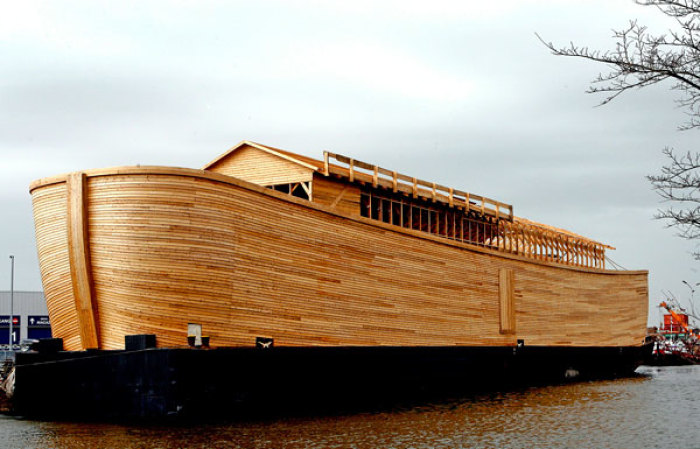Noah's Ark: Russian Gov't Gives Moscow University $194 Million to House DNA From Every Living, Extinct Creature Inside Giant Ark

Russia has awarded its largest scientific grant ever to Moscow State University that will allow the school to proceed with a project called "Noah's Ark, "which inspires to be the world's first DNA databank consisting of genetic material from every living and extinct creature, which they will house in a giant ark.
The approval of the approximate $194 million government grant was first reported last week by Russia's English outlet RT, and will require not only building a 430-square-kilometer ark, but also the daunting task of actually collecting DNA from every living creature and the ones that have long been extinct.
"I call the project 'Noah's Ark,'" MSU Rector Viktor Sadivnichy told journalists. "It will involve the creation of a depository — a databank for the storing of every living thing on Earth, including not only living, but disappearing and extinct organisms. This is the challenge we have set for ourselves."
The ark will be located on one of the university's central campuses and is set to be completed by 2018.
"It will enable us to cryogenically freeze and store various cellular materials, which can then reproduce," Sadivnichy said. "It will also contain information systems. Not everything needs to be kept in a petri dish."
The university's press office says that every department in the school will help contribute to the research and will help collect the genetic material from their various departments.
""If it's realized, this will be a leap in Russian history as the first nation to create an actual Noah's Ark of sorts," Sadivnichy said.
If MSU's databank wants to become the largest DNA databank in the world, it will have to surpass the United States' National Museum of Natural History, which is the world's largest biorepository with over 4.2 million genetic samples.
Although the planned Russian databank could very well be the largest biological databank ever, it's not the first databank of its kind, nor is it the first to be labeled as an ark.
In Britain there's "The Frozen Ark," a databank run by a consortium of zoos, aquaria, natural history museums and research laboratories dedicated to helping preserve genetic material from the world's endangered species.
"Few [institutions] are aimed exclusively at endangered species and none is saving appreciable numbers of invertebrates, on which so many larger animals, including mankind, depend," The Frozen Ark's website states. "Many institutions around the world already store animal tissues and viable cells, but not always in a manner that allows the preservation of undamaged molecules, and seldom in coordination with other similar institutions."




























